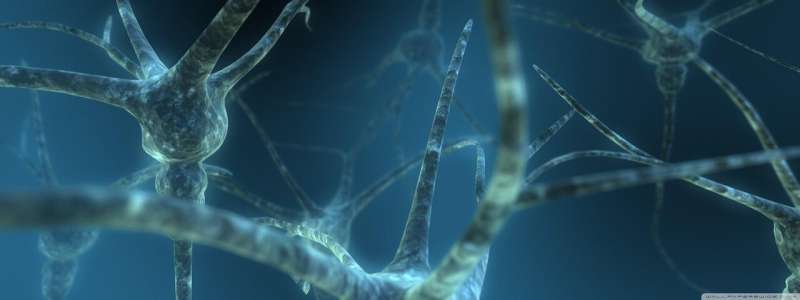#How proteins control information processing in the brain

“#How proteins control information processing in the brain”

A complicated interaction between proteins is needed for information to pass from one nerve cell to the next. Researchers at the Martin Luther University Halle-Wittenberg (MLU) have now managed to study this process in the synaptic vesicles, which play an important role in this process. The study appeared in the journal Nature Communications.
Several billion nerve cells communicate with each other in the body so that humans and other living beings can perceive and react to their environment. A host of complex chemical and electrical processes occur within a few milliseconds. “Special messenger substances—known as neurotransmitters—are released at the synapses of the nerve cells. They transmit information between the individual nerve cells,” explains Dr. Carla Schmidt, an assistant professor at the Center for Innovation Competence HALOmem at MLU. The messenger substances are packed into small vesicles called synaptic vesicles, which fuse with the cell membrane in response to an electrical impulse and release the messenger substances. The messenger substances are then recognized by special receptor proteins in the next nerve cell. For this to succeed, numerous proteins have to work together, meshing like cogs in a clockwork mechanism. However, too little is currently known about how this process precisely works, says Schmidt.
The researchers have used a special form of mass spectrometry to investigate the process. Cross-linking mass spectrometry helps identify the interaction sites of the proteins. These are mixed with a substance that binds together nearby proteins. This substance reacts at different places depending on how the proteins interact with one another. The mass spectrometer analyzes the binding patterns, which can be used to draw conclusions about the arrangement of the proteins. This enables researchers to examine different stages of the vesicles and to detect which protein networks have formed.
The study from Halle enables a more thorough understanding of the process of signal transmission in nerve cells. Knowledge about normal processes helps scientists recognize and understand malfunctions that could trigger diseases such as Alzheimer’s.
Tau prevents synaptic transmission at early stage of neurodegeneration
Sabine Wittig et al, Cross-linking mass spectrometry uncovers protein interactions and functional assemblies in synaptic vesicle membranes, Nature Communications (2021). DOI: 10.1038/s41467-021-21102-w
Provided by
Martin-Luther-Universität Halle-Wittenberg
Citation:
How proteins control information processing in the brain (2021, May 10)
retrieved 10 May 2021
from https://medicalxpress.com/news/2021-05-proteins-brain.html
This document is subject to copyright. Apart from any fair dealing for the purpose of private study or research, no
part may be reproduced without the written permission. The content is provided for information purposes only.
If you liked the article, do not forget to share it with your friends. Follow us on Google News too, click on the star and choose us from your favorites.
For forums sites go to Forum.BuradaBiliyorum.Com
If you want to read more Like this articles, you can visit our Science category.



